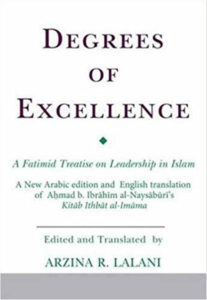
Degrees of Excellence: A Fatimid Treatise on Leadership in Islam (Ismaili Texts and Translations)
Arzina R. Lalani
IB Tauris (2009)
Rs4,835
One of the most distinguished scholars of his time, Ahmad b. Ibrahim al-Naysaburi lived during the height of Fatimid rule in Egypt. He came from Nishapur, the centre of the Ismaili da’wa in Khurasan, a thriving centre of learning particularly noted for its use of rationalistic philosophy. Several important works are accredited to him, but it is the Kitab ithbat al-imama which is of particular significance for the development of philosophy in medieval Islamic thought. In this work, presented here in a new edition and translation, al-Naysaburi allows us to understand not only the significance of his own thought, but also the beliefs of his age. Rather than basing his assertions exclusively on the authority of the Holy Qur’an and Hadith, he applies rational tools to explain his theology, providing a philosophical affirmation of the imamate by presenting a range of arguments, foremost amongst which is the theory of the ‘degrees of excellence’. Degrees of Excellence offers the first book-length study of this hitherto unknown scholar of the early 5th/11th century. This invaluable source of Fatimid historiography will prove essential reading for students of Islamic history, philosophy and theology. It will also serve as a useful reference for modern Shi’i communities of all persuasions.
Arzina R. Lalani received her doctorate from the Department of Arabic and MIddle Eastern Studies, University of Edinburgh. She is currently a Research Associate at The Institute of Ismaili Studies, London. A specialist in medieval Arabic literature and Shi’i thought, she is the author of ‘Early Shi’i Thought: The Teachings of Imam Muhammad al-Baqir’ (2000) which won prestigious literary awards and has been translated into several languages.
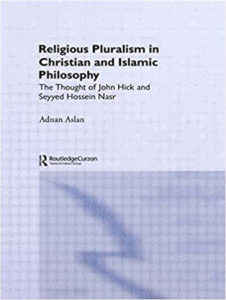
Religious Pluralism in Christian and Islamic Philosophy: The Thought of John Hick and Seyyed Hossein Nasr
Adnan Aslan
Routledge (1998)
Rs6,556
The philosophy of religion and theology are related to the culture in which they have developed. These disciplines provide a source of values and vision to the cultures of which they are part, while at the same time they are delimited and defined by their cultures.
This book compares the ideas of two contemporary philosophers, John Hick and Seyyed Hossein Nasr, on the issues of religion, religions, the concept of the ultimate reality, and the notion of sacred knowledge.
On a broader level, it compares two world-views: the one formed by Western Christian culture, which is religious in intention but secular in essence; the other Islamic, formed through the assimilation of traditional wisdom, which is turned against the norms of secular culture and is thus religious both in intention and essence.
‘The book presents a thorough and comprehensive account of the thinking of two significant contemporary intellectual figures, and in the process it provides readers with some excellent insights into the wider context of modern Christian and Islamic thought,’ writes Hugh Goddard in the Bulletin of SOAS.
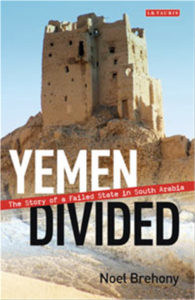
Yemen Divided: The Story of a Failed State in South Arabia
Noel Brehony
IB Tauris (2013)
Rs5,736
South Yemen has come to be seen as a potential Al-Qaeda stronghold and at the heart of a separatist movement threatening to rip apart southern Arabia. How has this country of forbidding mountains and arid deserts gone from British colony to communist state and then to ‘terrorist base’ in just half a century? In “Yemen Divided”, author and Middle East expert Noel Brehony tells for the first time comprehensive history of the People’s Democratic Republic of Yemen (PDRY). He explains the power politics that came to form a communist republic a few hundred miles from the holiest site in Islam, and the process and conflicts that led to Yemeni unification in 1990. The impact of PDRY is still felt today as unrest continues to escalate across the south. “Yemen Divided” is an important book for anyone wanting to understand why Yemen, sensitive neighbour of Saudi Arabia and strategically vital to Middle East security, has veered towards massive instability.
Noel Brehony had a career as a diplomat after completing a PhD from Durham and post doctoral research in the Middle East. He was in Aden in the early years of the People’s Democratic Republic of Yemen and followed events there until unity in 1990. He is a Research Associate at the London Middle East Institute at SOAS and has been chairman of the Middle East Association and the Council for British Research in the Levant and President of the British Society of Middle East Studies. He is currently chairman of the British Yemeni Society.
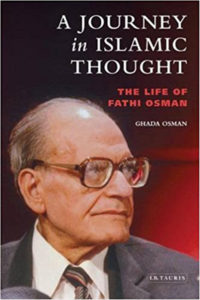
A Journey in Islamic Thought: The Life of Fathi Osman
Ghada Osman
IB Tauris (2011)
Rs6,064
From pre-revolutionary Egypt to the Muslim Brotherhood, and from imprisonment to exile, this is the life of Fathi Osman: a leading Egyptian-born thinker at the forefront of modern Islamic reformism for nearly four decades. Joining the Muslim Brotherhood as a young man, Fathi Osman rose through the ranks of the organization thanks to his own considerable oratory skills and his relationship with leading Brotherhood figures, Sayyid Qutb and Hasan al-Hudaybi. But as he began to recognize the covert violent aspects of the Brotherhood, he increasingly distanced himself and voiced his opposition.
He was, due to his association with the Muslim Brothers, imprisoned a number of times before he eventually left Egypt in self-imposed exile. Using interviews, family documents, and archival materials to chronicle Fathi Osman’s ideological development from spokesperson for the prototypical Islamist movement to formulator of a radical Islamic reformist ideology, Ghada Osman sheds light on the lure and inner workings of a major Islamist movement and the role of Islamic reform in the global arena. In the process, she has produced a dispassionate and thoroughly researched biography of a major figure of the twentieth-century Arab and Muslim intellectual world.
Ghada Osman is Associate Professor, Arabic Program Director, and Director of the Center for Islamic and Arabic Studies at San Diego State University. She was previously Teaching Fellow for Arabic and Islamic Studies at Harvard University.
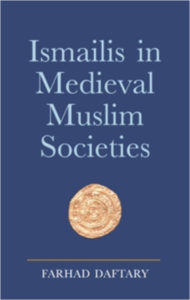
Ismailis in Medieval Muslim Societies: A Historical Introduction to an Islamic Community
Farhad Daftary
IB Tauris (2006)
Rs4,835
This important book, by an internationally acknowledged expert in Ismaili studies, introduces Ismaili history and thought in medieval times. Discussing the different phases in Ismaili history, it describes both the early Ismailis as well as the contributions of the later Ismailis to Islamic culture. A number of chapters deal with key Ismaili individuals such as Hasan-i Sabbah.
Other chapters contextualise the Ismailis within the early Muslim societies, in addition to investigating the Ismaili-Crusader relations and the resulting legends on the Ismaili secret practices. Over the course of the work, it becomes clear that Ismaili historiography, and the perception of the Ismailis by others (in both Muslim and Christian milieus), have had a fascinating evolution.
In the course of their long history the Ismailis have often been accused of various heretical teachings and practices and - at the same time - a multitude of myths and misconceptions have circulated about them.
This state of affairs reflected the fact that the Ismailis were, until the middle of the twentieth century, studied and judged almost exclusively on the basis of evidence collected, or even fabricated, by their enemies.
As the most revolutionary wing of Shi’ism, with a religio-political agenda that aimed to uproot the Abbasids and restore the caliphate to a line of ‘Alid imams, the Ismailis naturally from early on aroused the hostility of the Sunni establishment and majority. Farhad Daftary here separates myth from fact, propaganda from actuality, in a work characterised by his customary mastery of the sources and literature.
Discussing the different phases in Ismaili history, this book describes both the early Ismailis as well as the contributions of the later Ismailis to Islamic culture in medieval times.
Farhad Daftary is Head of the Department of Academic Research and Publications at the Institute of Ismaili Studies.

